All rights reserved. No part of this publication may be reproduced, stored in a retrieval system, or transmitted in any form or by any means without the prior written permission of the publisher.
Rabbi Rami Guides are brief, often humorous, no-nonsense explorations of issues facing spiritual seekers. Written for people of any faith or none, Rabbi Rami Guides hope to start conversations rather than end them.
Some people store grudges the way others store recipes.
My wifes grandmother used to keep little tin file boxes crammed with recipes: some neatly folded and others crushed and bent, some carefully printed out by hand in pen and pencil, others cut from magazines or torn from newspapers that yellowed with age. There seemed to be no order to her collection of recipes, though whenever she needed a specific recipe she knew exactly where to find it. Todays grandmothers may do something similar using a computer or iPad, and while the filing system may have changed, the passion for collecting, stuffing, and storing has not.
It is the same with grudges, slights, past hurts, and painful memories. We dont keep them in tin file card boxes or on digital flash drives, instead we cram them into our memory banks where, like our grandmothers recipes, they are easily retrieved when needed.
And when do we need them? Whenever we want to feel a bit holier-than-thou, cede to ourselves the moral high ground, or justify our recurring anger at one person or another.
Lest you think Im not talking about you, try this little experiment: Take a moment and think back to the earliest memory you have of being hurt by someone you trusted, liked, or loved. If you are like most people, such memories are not difficult to recall.
For example, as soon as I ask myself this question, I remember being continually bullied by two sixth-grade girls when I was a third-grader at George Washington Elementary School in Springfield, Massachusetts. Seeing them knock me down on my way to school in the winter, stuff snow into my Charlie Brown cap with earflaps, and then jam the hat on my head so tightly that my scalp burns with the cold is like watching an old movie. I feel sorry for that kid, and even sorrier for those girls, but I am no longer that little boy, and if those little girls tried to do that to me today Id scare them away. Assuming, of course, they were still twelve years old and I am my current age of sixty.
Time has muffled the pain, but the memory is not forgotten. Have I forgiven these tween terrorists? No. I moved past it simply because my dad made more money than their dads, and we found a new house in the safer suburbs. In time I outgrew the Charlie Brown winter headwear, but not the bullying.
I remember a friend in the seventh grade who would back me against a wall and wail into my stomach with his fists clenched almost as tightly as his jaw. He was a good twelve inches shorter and nowhere near my weight. I never hit him back, but I would look down on him and say, What the hell do you think youre doing? After throwing a few more punches he would realize that he wasnt hurting me, and he would stop the pounding. I doubt he had a clue why he exploded this way or why I was his preferred target. I just kept the pounds on to protect myself from the pounding.
Did I forgive him for his brutality? No. One day he and his family just moved away. One less bully in our junior high school, but there were plenty more. I never forgave any of them. In fact, now that I am writing about this, I cant tell you one person whom I have forgiven. Nor can I explain what forgiving someone actually is.
I know the saying, forgive and forget, but clearly I havent forgotten and just as clearly I havent forgiven. And while I would not be so smug as to claim that these and similar experiences dont shape the person I am today, I am smug enough to imagine that if they do, they do so only slightly.
So here I am writing the Rabbi Rami Guide to Forgiveness without the foggiest idea of what forgiveness is or how to go about forgiving people.
What I am good at, however, is asking for forgiveness. I am fairly attuned to the pain I cause others, so I am quick to ask. Yet, if I am honest, I must admit that asking for forgiveness is often a tactic for alleviating the guilt I feel when I cause another to suffer. If I can get you to forgive me, I can move on without carrying the guilt of having caused you unnecessary pain in the first place. And, if you are lucky, I may actually learn something from the experience and not cause you pain in the future. At least not the same pain.
I dont want to give you the impression that Im hard hearted and never forgive people. I do, and I do it all the time. If you hurt me and ask for my forgiveness, I immediately smile, grant your request, and give you a hug. Then, when we part, I make a mental note never to trust you again.
It isnt that I cut off all ties with you. On the contrary, we may have a close and continuing relationship, but I no longer entertain the notion that you wont hurt me. Chances are you will, and chances are I will hurt you as well. So forgiveness, whatever it is, isnt the ending of hurt or the possibility of hurt. It is simply moving on a bit more wisely. Now that is a definition of forgiveness you wont find in any dictionary: Forgiveness, verb, the act of moving on with your life a bit more wisely.
Forgiveness wont erase the past, but it just might free you from it; it wont save you from suffering, but it just might help you realize that suffering is simply part of the human condition, and thus allow you to suffer without the added element of surprise. Maybe forgiveness is simply the stripping away of illusion so that you can navigate your way through life with more clarity and less bruising.
I dont know, but I will take the notion that forgiveness is about living life more wisely as our operational definition for this Guide. If we discover it is something else along the way, all well and good. But I suspect we will refine rather than replace our definition. And, since Ive read this book all the way to end, you can take my word that refining rather that replacing is exactly what we will do.
So lets be clear: this is a guide to forgiveness by a fellow whose definition of forgiveness differs from almost everyone elses, and who isnt in any way a master of the practice of forgiveness at all. So why should you read this book? Here are the three reasons for doing so.
First, most books on forgiveness assume forgiveness is a skill you can learn and use whenever you wish. I disagree. Forgiveness isnt a skill, but a level of understanding of the nature of life and how best to live it. It isnt something you can use the way you might use an umbrella or a fork, it is an attitude toward self and others and life in general that can be cultivated but never mastered.
Second, most books on forgiveness suggest that forgiveness is a way of escaping suffering; this one doesnt. Forgiveness isnt a tactic you can employ to make your life less stressful and more joyous. Forgiveness isnt something you can deploy to end suffering. Suffering is a part of life; the Buddha went so far as to say that suffering is life, or at least life is suffering when you continue to live it in a manner rooted in craving and grasping, and the anger, arrogance, and jealousy that erupts when you do live this way.

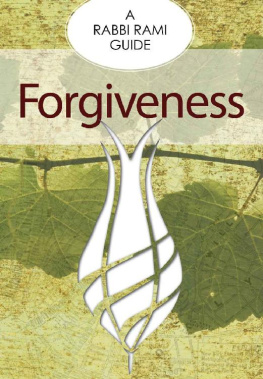
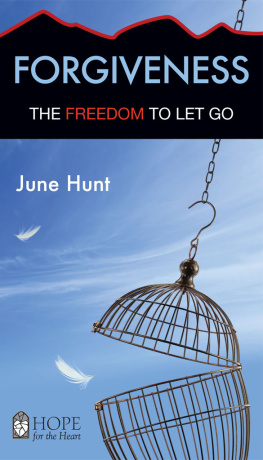
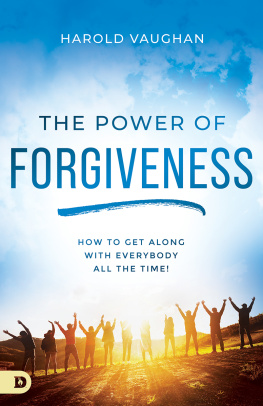
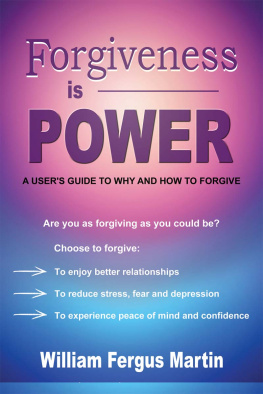

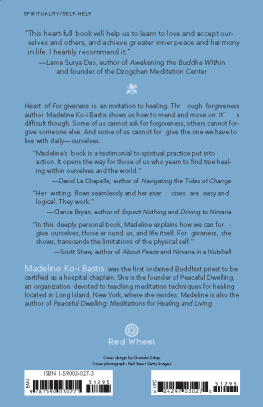
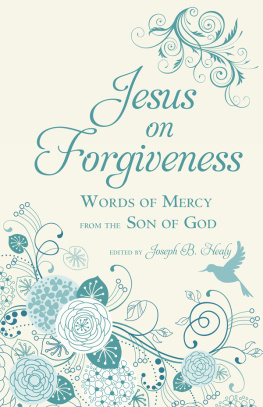
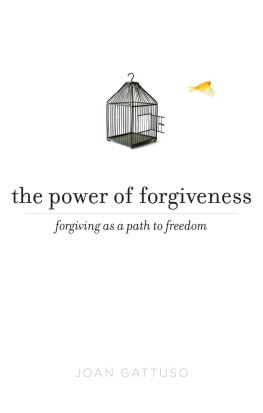
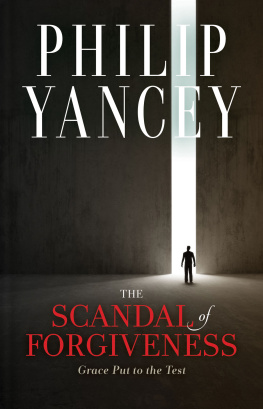
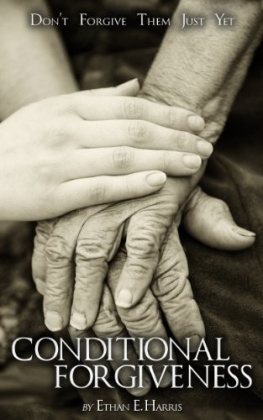
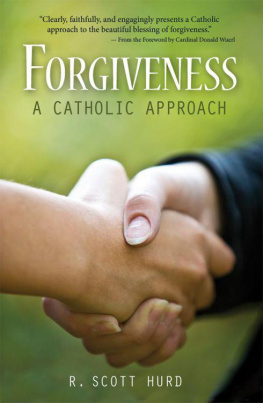
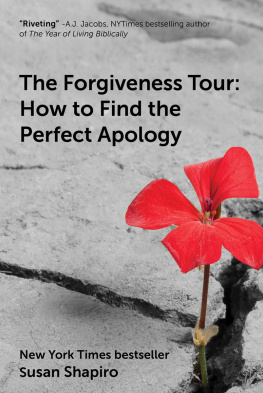
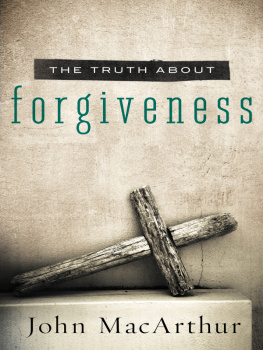

 www.rabbirami.com
www.rabbirami.com